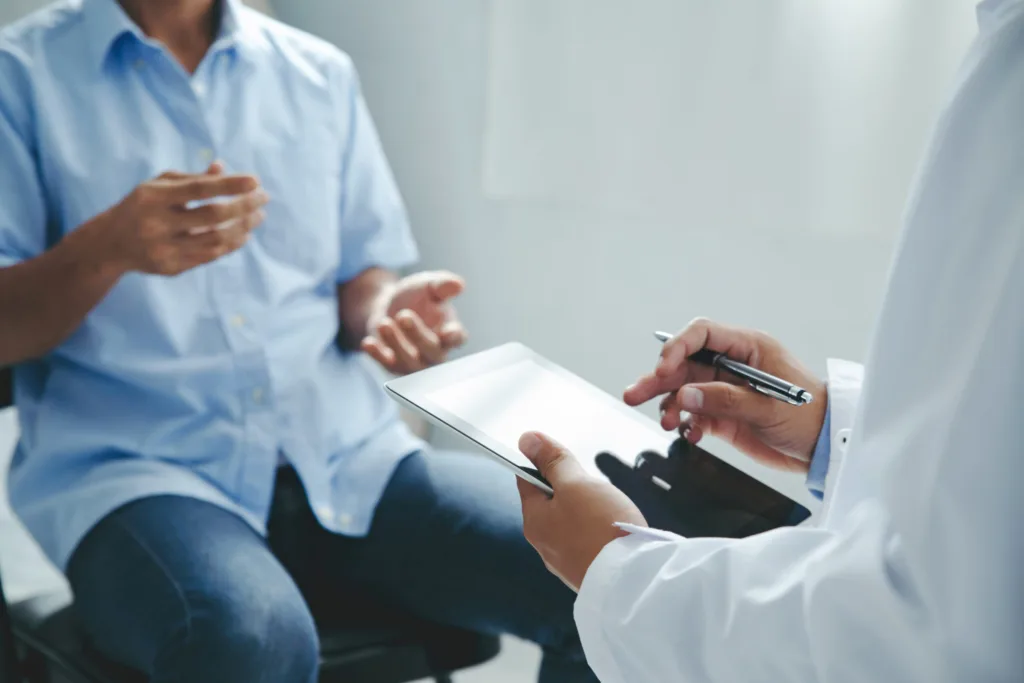Can Social Drinking Be a Problem?

Barbeques, bridal showers, staff parties, and graduation celebrations are normal occurrences and places to drink or two.
American society is one in which social drinking is a common element of life, with most gatherings usually including alcohol of some sort; this may lead to people feeling like they are required to drink even when they are trying to avoid it.
While there is nothing wrong with a drink or two on occasion, it is possible for social drinking to become more problematic and lead to complications down the road.
What is social drinking?
Social drinking is exactly what it sounds like – drinking with others. It is also considered one of the “safer” ways to engage with alcohol, as those who are social drinkers tend not to drink alone.
Those who drink socially may do it to fit in with the group or use it to help ease tension and allow the conversation to flow a little more naturally. Most of the time, the intention of social drinking is not to get drunk but to simply engage more actively in the event.
For the most part, social drinking is safe so long as the intention of getting drunk or overdoing it is not part of the equation. Social drinking, also considered moderate drinking, can be enjoyed if you know your limits and do not drink to the point of excess. If you are simply having a drink or two with friends and have no intention of getting drunk or engaging in risky behavior, social drinking can be relatively harmless.
When does social drinking become problem drinking?
As with any substance, there is always a risk involved with social drinking. Even if you do not intend to overdrink, continue monitoring yourself and balance out the alcohol with nonalcoholic drinks (i.e., water in between each drink).
But as you drink socially more frequently, it can become habit-forming, and you may feel tempted at times to engage in heavier drinking.
Signs that social drinking has turned into more problematic drinking habits include:
- Being unable to stop drinking even if you are aware that your limit has been reached
- Starting to drink alone or drinking alone more often than you normally would
- Engaging in risky behaviors, like driving or promiscuity, while drinking
- Feeling guilt or shame after drinking
- Noticing how your family is expressing concerns
- Finding yourself thinking often about when you might be able to have your next drink
- Realizing your drinking behaviors are hurting your daily life, including interfering with your work and/or school
- Using alcohol as a coping mechanism to deal with the stressors of life, or to possibly numb symptoms of other mental health disorders such as anxiety or depression
- Experiencing financial difficulty as a result of drinking habits, but continuing to drink regardless
When social drinking does become more frequent and issues like these are noted, it is important to consider whether your drinking habits are becoming more problematic than not. If you are concerned about the potential of social drinking turning into alcoholism, there are steps you can take to manage your alcohol intake and get a handle on unhealthy habits.
Can I socially drink safely?
Regarding social drinking, moderation is the key – once it becomes a routine/frequent habit, problems begin to arise. Ways you can help prevent any social drinking from turning into an alcohol use disorder include:
- Having an accountability buddy — If you have someone else you know at the event who is trustworthy and reliable, ask them to help keep you accountable for how much you are drinking; perhaps they check in on you every hour or so to help you maintain that level of sobriety you were hoping to have by the end of the night
- Have a plan — If you know that after a certain amount of time at a party when you are tempted to drink more, or when certain peers arrive, it becomes harder to be accountable, have a plan to leave before these temptations get the better of you
- Bring yourself your drink—If you know that you tend to drink more than you want but can’t seem to control it, bring your drink, like soda or seltzer water, to keep you from starting drinking in the first place
Lastly, if you are truly concerned about your drinking habits and feel like you need more help before things escalate beyond your control, consider the benefits of meeting with a mental health counselor who can provide you with helpful coping mechanisms and teach you how to appropriately monitor your actions and thoughts.
Looking for a mental health therapist?
If you are ready to begin therapy for help with problematic drinking or any mental health condition, Pyramid Healthcare is here to help. If you are a West Virginia resident searching for resources close to home, contact Pyramid Healthcare at 888-461-7426 or online anytime to learn more about our personalized recovery programs.








